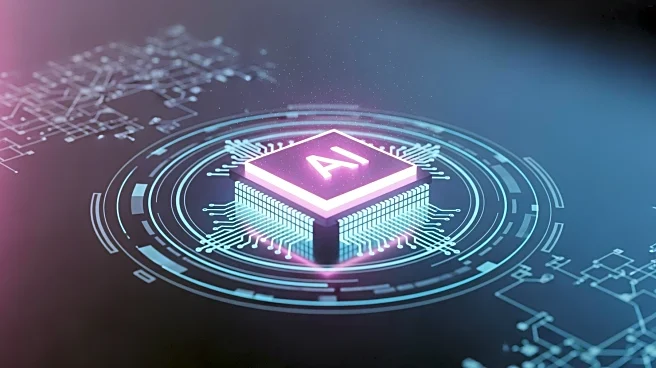What's Happening?
Epic Games CEO Tim Sweeney has entered the debate surrounding the use of AI voice generation in Embark Studios' game Arc Raiders. The controversy began after Eurogamer published a critical review of the game, highlighting concerns over AI-generated dialogue.
Sweeney defended the technology, arguing that AI can enhance gaming by increasing productivity and enabling more dynamic in-game dialogue. He suggested that AI, combined with human personality and tuning, could transform gaming experiences. The discussion has sparked broader conversations about the role of AI in the gaming industry, particularly regarding its impact on human voice actors.
Why It's Important?
The debate over AI in gaming is significant as it touches on the future of game development and the potential displacement of human voice actors. AI technology promises increased productivity and more immersive gaming experiences, but it also raises ethical and economic concerns. The actors' union SAG-AFTRA recently concluded strikes over AI's impact on voice actors, highlighting the industry's apprehension. As AI becomes more prevalent, stakeholders must navigate the balance between technological advancement and preserving human roles in creative processes. This controversy could influence future industry standards and labor agreements.
What's Next?
The gaming industry may see increased scrutiny and discussions about AI's role in development. Stakeholders, including game developers, voice actors, and unions, are likely to engage in negotiations to establish guidelines for AI use. The outcome could shape future labor agreements and industry practices. As AI technology evolves, developers might explore new ways to integrate it while addressing ethical concerns. The controversy could also prompt further research into AI's capabilities and limitations, influencing how games are designed and experienced.
Beyond the Headlines
The ethical implications of AI in gaming extend beyond voice acting. The technology challenges traditional notions of creativity and authorship, raising questions about the value of human input versus machine-generated content. As AI becomes more integrated into gaming, it could redefine the industry's cultural landscape, influencing how stories are told and experienced. The debate also highlights broader societal concerns about automation and its impact on employment, prompting discussions about the future of work in creative industries.















